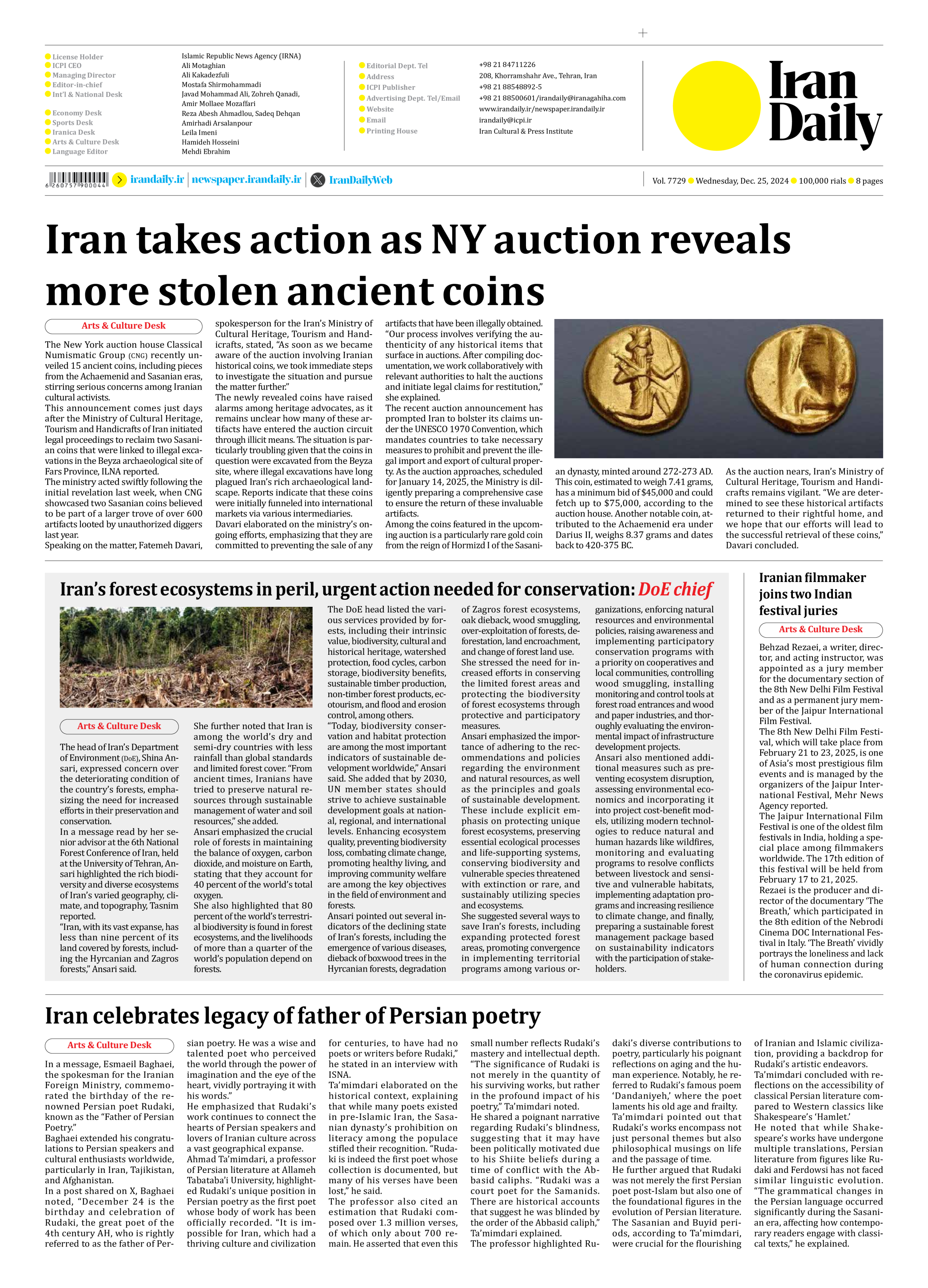
Iran celebrates legacy of father of Persian poetry
In a message, Esmaeil Baghaei, the spokesman for the Iranian Foreign Ministry, commemorated the birthday of the renowned Persian poet Rudaki, known as the “Father of Persian Poetry.”
Baghaei extended his congratulations to Persian speakers and cultural enthusiasts worldwide, particularly in Iran, Tajikistan, and Afghanistan.
In a post shared on X, Baghaei noted, “December 24 is the birthday and celebration of Rudaki, the great poet of the 4th century AH, who is rightly referred to as the father of Persian poetry. He was a wise and talented poet who perceived the world through the power of imagination and the eye of the heart, vividly portraying it with his words.”
He emphasized that Rudaki’s work continues to connect the hearts of Persian speakers and lovers of Iranian culture across a vast geographical expanse.
Ahmad Ta’mimdari, a professor of Persian literature at Allameh Tabataba’i University, highlighted Rudaki’s unique position in Persian poetry as the first poet whose body of work has been officially recorded. “It is impossible for Iran, which had a thriving culture and civilization for centuries, to have had no poets or writers before Rudaki,” he stated in an interview with ISNA.
Ta’mimdari elaborated on the historical context, explaining that while many poets existed in pre-Islamic Iran, the Sasanian dynasty’s prohibition on literacy among the populace stifled their recognition. “Rudaki is indeed the first poet whose collection is documented, but many of his verses have been lost,” he said.
The professor also cited an estimation that Rudaki composed over 1.3 million verses, of which only about 700 remain. He asserted that even this small number reflects Rudaki’s mastery and intellectual depth. “The significance of Rudaki is not merely in the quantity of his surviving works, but rather in the profound impact of his poetry,” Ta’mimdari noted.
He shared a poignant narrative regarding Rudaki’s blindness, suggesting that it may have been politically motivated due to his Shiite beliefs during a time of conflict with the Abbasid caliphs. “Rudaki was a court poet for the Samanids. There are historical accounts that suggest he was blinded by the order of the Abbasid caliph,” Ta’mimdari explained.
The professor highlighted Rudaki’s diverse contributions to poetry, particularly his poignant reflections on aging and the human experience. Notably, he referred to Rudaki’s famous poem ‘Dandaniyeh,’ where the poet laments his old age and frailty.
Ta’mimdari pointed out that Rudaki’s works encompass not just personal themes but also philosophical musings on life and the passage of time.
He further argued that Rudaki was not merely the first Persian poet post-Islam but also one of the foundational figures in the evolution of Persian literature. The Sasanian and Buyid periods, according to Ta’mimdari, were crucial for the flourishing of Iranian and Islamic civilization, providing a backdrop for Rudaki’s artistic endeavors.
Ta’mimdari concluded with reflections on the accessibility of classical Persian literature compared to Western classics like Shakespeare’s ‘Hamlet.’
He noted that while Shakespeare’s works have undergone multiple translations, Persian literature from figures like Rudaki and Ferdowsi has not faced similar linguistic evolution. “The grammatical changes in the Persian language occurred significantly during the Sasanian era, affecting how contemporary readers engage with classical texts,” he explained.







